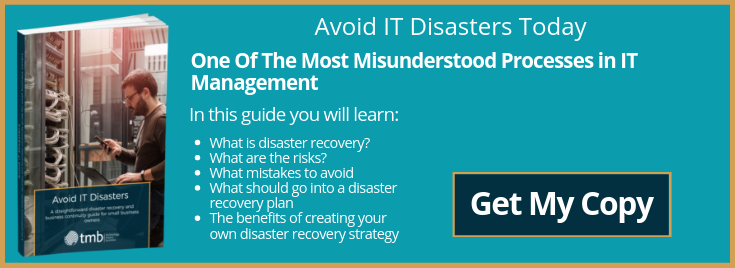How To Decide On Your Disaster Recovery Solutions In London
Companies in London enjoy economic benefits, but it comes at a cost. The lucrative postcode creates an automatic target for cyber criminals, whilst the population density means that a neighbouring office’s system upgrade can easily take your business offline. Working in London increases the disaster risk, so having a reliable disaster recovery solution is important. Here are the answers to a few common questions.
What Are My Disaster Recovery Options?
There are two main approaches: in-house and outsourcing.
In-house disaster recovery means training the necessary staff to handle an emergency, manage your own IT backup systems, and carry out risk assessments. Think of the in-house option as being equivalent to having a first aider on the staff and hazard solutions in place.
However, your emergency disaster recovery team will come at a cost, and they may have other crises to attend to first. Whilst your organisation is on hold and draining profits, you are left listening to elevator music. Moreover, your digital first aider needs to be retrained every few weeks and software needs to be constantly updated, otherwise a minor bump could turn into a major catastrophe.
Outsourcing works on a personalised subscription basis. Your real-time data backup and security is taken care of for you, so your organisation can begin working again immediately after a problem. This background level of security reduces the risk of ever needing an emergency response, but if you ever do need it, it is on the doorstep within moments.
Do I Really Need To Care?
According to government statistics, yes. Half of all SMEs experience cyber crime in the average year, and the number is rising. Figures show that London is a particular hotspot, with over 2.5 million attacks per year. Moreover, the outlook is bleak, according to Forbes. Their researchers – who have been accurate in their analyses for many years – claim that by the close of 2019 “cybersecurity alone is not going to be enough to secure our most sensitive data”. The world is changing fast, and your company needs to be ready.
How Can I Protect My Business From Cyber Threats?
If you’re in London, you are already at a slight disadvantage. The main problems are that web-connected devices and services tend to be unsecure. Even if your office is barricaded behind firewalls, it only takes one remote access user who clicks on a malicious email link to send a bug into the system. Therefore, the best form of preparedness is to have a robust system in place. The best way to ensure this is by working with expert providers.
Ideally, aim for an outsourced provider that offers 24/7 service 365 days a year. Look for a company that has good local coverage, and which has reasonable costs. The cost has to cover their own expenses – which includes keeping their experts trained – but the expenditure should reflect your bespoke needs. When checking the quality of a company, explore their credentials and also the software they are using. If their software is not up to scratch, their cover probably won’t be either.
Download Our New Free Disaster Recovery Guide
The biggest challenge for many business leaders is simply keeping up with the rapid evolution of digital safety. TMB has a range of cyber security resources, including a free Disaster Recovery Guide e-book. It has all of the information you need to start making informed choices about your safety and preparedness.


